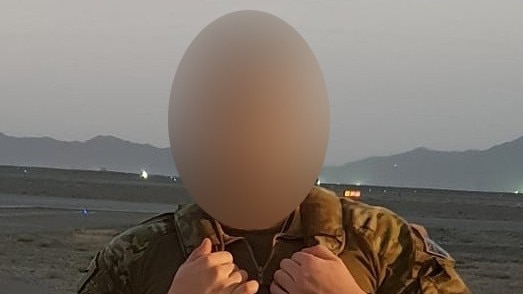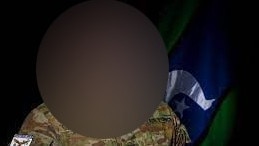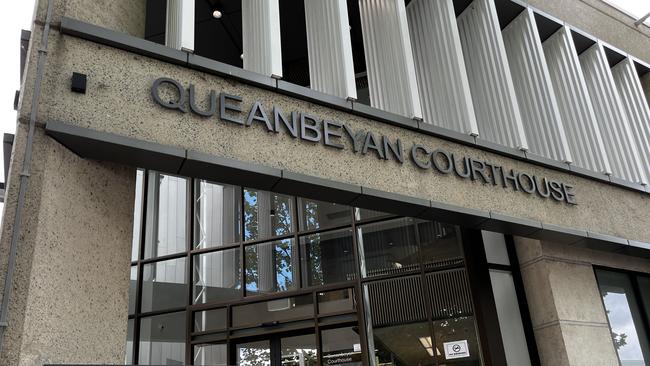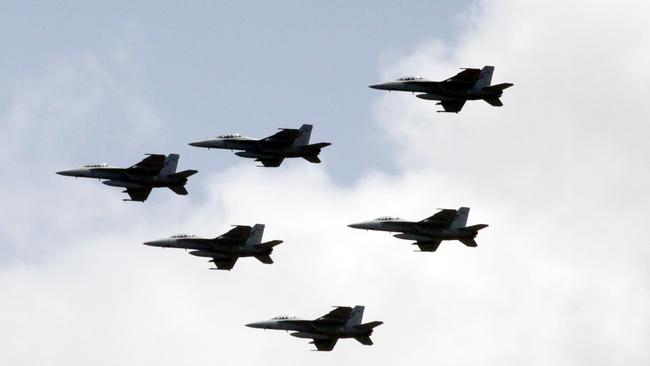Queanbeyan magistrate Roger Clisdell calls lack of support for Australian Defence Force veterans a ‘disgrace’
After heroic police officers put their safety at risk to stop a mentally ill former member of the military taking his own life, a magistrate says it is unsurprising veterans feel “abandoned” by wider society.

Canberra Star
Don't miss out on the headlines from Canberra Star. Followed categories will be added to My News.
A magistrate has slammed the lack of support in the community for veterans, labelling it a “disgrace”, after heroic police officers put their safety at risk to stop a mentally ill former member of the military taking his own life.
Magistrate Roger Clisdell said Australia asked members of the military to risk their lives, only to reward them by “abandoning” them when they returned to civilian life.
“We want them to defend us, to give their lives for us,” Mr Clisdell said in passionate sentencing remarks delivered in Queanbeyan Local Court on Monday.
“And what’s their reward? Their reward is to be second-guessed by people whose bottoms have not left a chair.
“We throw them out into the community and say, ‘Guess what, pal? Go and make a living somewhere else.’”

Mr Clisdell made those comments as he sentenced a 36-year-old former member of the Royal Australian Air Force to a 12-month conditional release order without conviction.
The former airfield defence guard had previously pleaded guilty to a charge of firing a firearm in a public place, following an incident that occurred in December last year.

Agreed facts, tendered to the court, reveal the man was medically discharged from the Australian Defence Force after suffering a back injury.
Mr Clisdell said about two weeks after undergoing spinal surgery, the severely mentally ill man “decided to end his life”.
The former air force member collected a box of his most precious possessions, including his military medals, for his young son.
When he went to his ex-partner’s home and gave her the box to pass on, she spotted a handgun in his pocket and called police.

Court documents outline how police eventually spotted the man driving around and pursued him as he drove off the road, up a steep embankment, to a lookout in the Queanbeyan area.
Once there, he got out of his car and fired a round from the Glock pistol into the ground near his feet.
“Although it did not appear to be an aimed shot at police, attending police were only a short distance away from the accused at the time the pistol was fired,” the facts state.
A local senior constable established a rapport with the man and calmed him down as officers awaited the arrival from the ACT of a specialist negotiator.
Eventually, the man disarmed the gun and surrendered.
On Monday, defence barrister Joshua Nottle told the court his client had been involuntarily detained under mental health legislation for some time following the incident.
Mr Nottle indicated the 36-year-old had subsequently checked himself into mental health facilities on multiple occasions, and planned to do so again immediately after his sentencing.
As he urged Mr Clisdell not to record a conviction, Mr Nottle said the former air force member had developed post-traumatic stress disorder following his service in the Middle East.
Mr Nottle said while overseas, the man had “wrestled a pistol away from someone who wanted to suicide”.
The court heard the man had also witnessed a family of five being killed in a crash.
Police prosecutor Emily Finn accepted December’s incident had occurred in the context of “a mental health breakdown”.
Sergeant Finn said while she empathised with the offender, a conviction should be recorded.
Mr Clisdell disagreed, saying he “could not, in good conscience”, convict the 36-year-old.
He said material before the court showed the offender was “a very good human being” and a respected member of his community, who had gone beyond the call of duty for his country.
The magistrate praised the actions of the police officers who saved the man’s life, saying they had prevented yet another former member of the military from dying by suicide.
“How many of those have we got?” Mr Clisdell asked.
“Dozens? Hundreds? We don’t always know.”
Remarking that he “deplored” the lack of mental health support available in the community generally, Mr Clisdell said it was “unsurprising” that returned servicemen felt abandoned.
The issue of suicides in the Defence Force community has been examined over the past three years by a royal commission, which is expected to submit its final report to the Governor-General in September.
NEED HELP?
Lifeline: 13 11 14 or lifeline.org.au
Beyond Blue: 1300 22 4636 or beyondblue.org.au
Kids Helpline: 1800 55 1800 or kidshelpline.com.au
Headspace: 1800 650 890 or headspace.org.au




